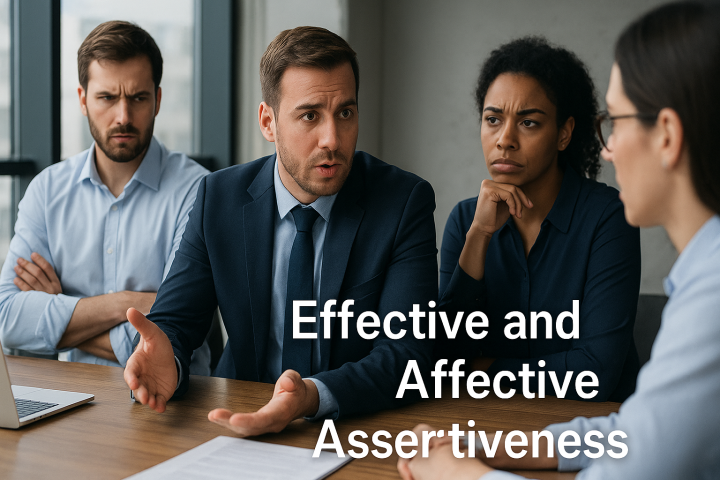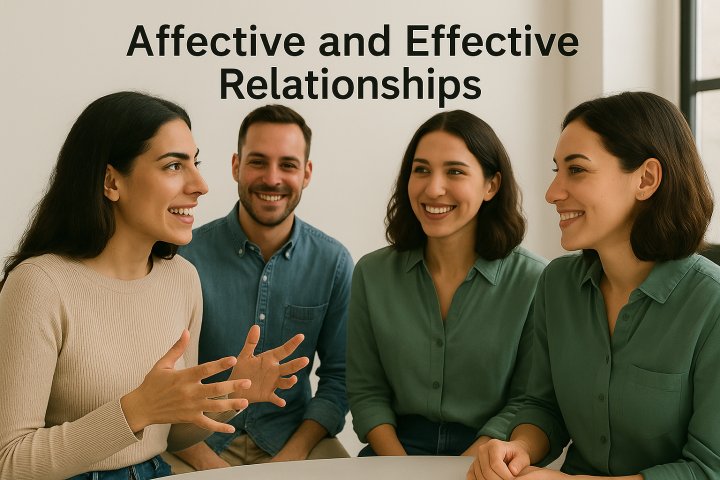INTEGRITY BUSINESS SERVICES
Cápsula de la Semana / Capsule of the Week
Affective and Effective Acceptance
Hello, Team!
This week, we continue with our micro-training series: Relationships in the Workplace.
Let’s take our workplace relationships to the next level.
Today’s Topic: Emotional and Effective Acceptance
Another key aspect that helps us feel valued is feeling accepted.
Imagine arriving at work on a Monday like today—with your mind full of personal worries and your heart a little heavy from things that have nothing to do with your job, your calendar, or your quarterly goals. And yet, there you are, trying to smile, to fit in. Then something small happens—someone listens to you without judgment.
In this third capsule of our series on human-centered workplace relationships, we want to talk about that: the quiet but powerful impact of acceptance. Because if we don’t permit ourselves to simply be, how can we build genuine relationships?
Step 1: It Starts With Ourselves
No, it’s not a cliché. It’s essential.
Sometimes, we feel insecure, exhausted, or unsure of what to do…
Maybe because someone we deeply care about has rejected a part of us—not all of us, but enough to leave a mark. And if that person means so much to us, we may end up doing the same to ourselves.
This is even harder to manage when it’s not a recent experience, but something that’s been with us for a long time.
What does a lack of acceptance lead to?
Often, it creates toxic perfectionism, environments full of masks, and emotional burnout.
But as part of Integrity, we’re meant to shine through our authenticity.
As Brené Brown, a leading expert on vulnerability and leadership, puts it:
“Authenticity is the daily practice of letting go of who we think we’re supposed to be and embracing who we are.”
Step 2: Acceptance Is Not Resignation — It’s Understanding
To accept is not to tolerate what harms us or to justify harmful behavior.
Acceptance means recognizing that every person is on their journey, with their emotional map, history, and wounds.
When we practice acceptance, we stop trying to change others to fit our idea of how they should be.
We begin to listen, observe, and engage in dialogue without the urgency to be right.
The result? More empathetic teams. Fewer conflicts. Deeper connections.
And perhaps most importantly: when someone feels accepted, they begin to thrive emotionally.
Step 3: Cultivate Acceptance in Your Inner Circles
By inner circles, I mean your partner, your family, your close team—the people working right next to you.
If you read our last topic, you know this is about listening with your whole body—eyes, heart, and soul. Not preparing your response while the other person is still speaking.
“I’m feeling really frustrated today.”
“I can see you’re going through something.”
Naming emotions disarms judgment.
“Honestly, what you did wasn’t okay. But let’s talk about how we can improve this together.”
We truly want to practice acceptance the way Jesus of Nazareth once did—learning to honor the diversity of thought, emotion, and culture.
We embrace the person, even if they don’t think the way we do.
Not everyone handles stress the same way. Not everyone solves problems the same way.
Step 4: Acceptance Is Not Passivity — It’s Emotional Leadership
People who practice acceptance radiate calm.
They hold the emotional space for their team. And by doing so, they create psychological safety—the fertile ground where innovation, honesty, and true collaboration grow.
A Challenge for the Week: The Mirror and the Bridge
This week, try two simple—but powerful—practices:
1. The Mirror:
Each morning, before starting your workday, give yourself 30 seconds in front of a mirror (or your phone’s selfie camera).
Look at yourself without judgment and say aloud:
“Today, I accept myself as I am. I’m on a journey, and that is enough.”
(This tiny act begins to reprogram your relationship with yourself. It gives you permission to be human.)
2. The Bridge:
Pick one person in your workplace with whom you’ve had tension, friction, or simply emotional distance.
This week, choose to have a short conversation from a place of acceptance.
It can be as simple as:
“I just wanted to say I value the work you do—even if we don’t always see things the same way. I’m here to collaborate.”
It’s not about solving everything. It’s about starting to build bridges.
Adrian Rojas




